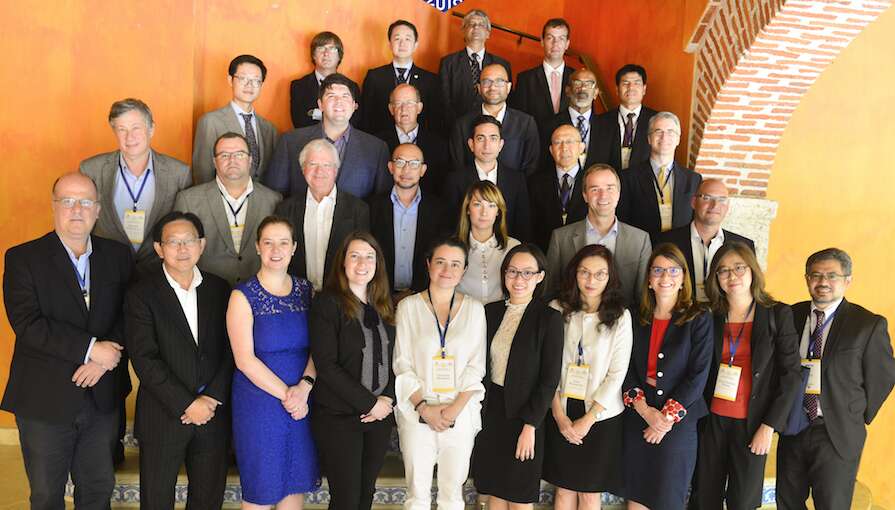High-level seminar features DPE expert on international money and finance

How do we deal with the volatility of international capital movements?
Countries may experience a surge in capital inflows for a few years and then a sudden stop or reversal. These shifts are sometimes associated with external factors and, in particular, U.S. monetary policy. Capital volatility creates challenges for economic management. The problems associated with a sudden outflow of private capital can, however, be improved by providing a well-designed global financial safety net. In principle, this can comprise various elements: owned international reserves, swap agreements, borrowing from regional agencies, and drawings from the International Monetary Fund.
A high-level conference was held in Cartagena, Colombia in May, 2018, that analyzed and discussed the issues involved. It was co-sponsored by the ASEAN+3 Macroeconomic Research Office (AMRO), the European Stability Mechanism (ESM) and the Fondo Latino Americano de Reservas (FLAR), and was attended by senior officials from these organizations, the IMF, the Economic Commission for Latin America, the international development banks and other organizations, as well as by former finance ministers and a number of academic experts.
Graham Bird, from the Department of Economic Sciences, gave an invited presentation to the seminar to explain and analyze IMF conditionality. As Bird says, “conditionality may be seen as standing in place of the collateral often used in normal lender/borrower relationships, and as a way of dealing with moral hazard. It has been a focus of attention for many years and is becoming even more important in the contemporary global environment.”
Bird was able to draw on material from his co-authored book, The International Monetary Fund: Distinguishing Reality from Rhetoric, which reviewers have described as a “must read” for any serious scholar of international monetary affairs. He was also able to report the findings of research that he has conducted with DPE doctoral student and Fulbright Scholar Faryal Qayum. This mixed methods research investigates the effects of IMF programs on poverty, income inequality and social expenditure in low income countries. As Bird explains, “much of our empirical evidence is inconsistent with the ‘conventional wisdom’ that IMF programs have significant adverse effects on the indicators of social development.”
Learn more about the full RFA Seminar workshop — including Bird’s participation — at this link.
Bird has subsequently published an article in World Economics that analyzes the design of a global financing safety net. The journal was established by the Oxford Institute of Economic Policy at the University of Oxford and aims to provide the “best current thinking on a range of important policy issues in a way that combines rigor and readability.” Bird has been a frequent contributor.
Bird and colleague Tom Willett, along with a large group of doctoral students at CGU, are continuing to investigate various dimensions of international capital mobility, capital surges, sudden stops and currency crises in an attempt to push forward our understanding of these phenomena.
“It is good to see the strong profile and impact that leading edge research in international money and finance at CGU is having at the highest levels of policy making,” he said.
Learn more about Graham Bird here
Learn more about the Claremont Institute for Economic Policy Studies.